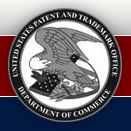US BPAI Clarifies Interference Deposition Guidelines

Thanks to The Patent Propsector for noting that the USPTO Board of Patent Appeals and Interferences (BPAI) last month laid out a rare precedental ruling regulating attorney conduct during patent interference cross-examinations in Pevarello v. Lan, Patent Interference 105,394. The decision involved objections to the admissibility of evidence based on alleged violations of the Board's Cross Examination Guidelines, and includes the following admonitions:
- Our guidelines are essentially those which appear in
Hall v. Clifton Precision, a Division of Litton Systems, Inc.,
15 150 F.R.D. 525 (E.D. Pa. 1993). We recommend that the practicing bar read Judge Gawthrop's opinion because the deposition philosophy expressed in his opinion was adopted by the Trial Section—now the Trial Procedures Section of the Trial Division. Many questions which the bar may have are answered in Judge Gawthrop's opinion. Fundamentally, however, it should be remembered that a deposition is an opportunity for an opposing counsel to have a conversation with the witness:"A deposition is meant to be a question-and-answer conversation between the deposing lawyer and the witness. There is no proper need for the witness's
own lawyer to act as an intermediary, interpreting questions, deciding which questions the witness should answer and helping the witness to formulate answers." 150 F.R.D. at 528, col. 1. - Any objection to the admissibility of evidence during cross examination must be stated concisely and in a non-argumentative and non-suggestive manner and must include the legal basis for the objection.
- Motions to exclude based on blanket objections will not be considered because blanket objections during a deposition fail to comply with Guideline.
- It is up to the witness to indicate that the witness is confused. It is not up to counsel to note any confusion.
- There is nothing wrong on cross examination to inquire into whether a witness would like to reconsider and possibly change or otherwise clarify direct testimony.
- When a defending lawyer attempts to clarify what the witness said, the defending lawyer has determined that the Board's Guidelines do not apply. The lawyer takes over control of the case from the Board.
- "I'm going to object because there's no question pending" translated into plain English means "Do not say anything more." If ever there was an example of improper coaching, this is it.
- It is up to the witness to inform questioning counsel that the witness's testimony has been mischaracterized or misstated. The proper procedure would have been for counsel for Pevarello to clear up the "misstatement" on redirect.
- In patent interference practice before the Board, there is no such thing as an objection to the form of the question.
- The administrative patent judge assigned to manage an interference is "but a phone call away."
- Absent a compelling reason, we counsel against any attempt to inquire on cross-examination into how direct testimony declarations came to be prepared:
"First, we can advise the bar that (1) we assume that ordinarily an attorney prepares at least the first draft of a declaration after discussion with the witness, (2) the witness is probably paid for time involved in testifying, either because the witness is an outside expert or is employed by the real party in interest, (3) drafts, possibly numerous drafts, are created and revised through discussions between the witness and the attorneys and (4) ultimately a draft is agreed to which is signed. We have
no problem whatsoever with the process."Second, a tension exists between (1) an inquiry into details of how a direct testimony declaration came to be prepared, on the one hand, and (2) both the attorney work product doctrine and attorney-client privilege, on the other hand. An attorney needs to be able to freely talk with a client witness or a non-client witness to formulate a litigation strategy (or even to see if there is a case to present). After-the-fact cross examination inquiries into declaration preparation tend to chill an inquiry an attorney might initially make into what the facts are and who should testify concerning particular facts.
"Third, what matters is what is said on the merits, e.g., (1) identification of credentials, (2) explanation of an invention, (3) explanation of prior art, (4) explanation why an invention sould not be expected to "work," (5) an underlying basis for opinions stated by experts and (6) events related to conception, diligence and actual reduction to practice. Cross examination to inquire into whether the witness has a basis for facts asserted and opinions stated in a declaration is fair game. Indeed, inquiry into facts and opinions should be the focus of cross examination.
"Obviously there will be cases where qualification of a witness and possible witness bias may need to be addressed and inquiry into these subjects is also fair game for cross examination. Cross examination which "sticks" to the relevant technical facts will shorten cross examination time and will probably be more effective in helping a party establish its position on a particular point."

1 Comments:
fitflops outlet sale
oakley sunglasses wholesale
ray ban sunglasses
oakley,occhiali oakley,oakley italia,oakley occhiali,oakley sunglasses
cheap nba jerseys
burberry outlet sale
mulberry outlet
burberry outlet online
toms outlet store
coach outlet
louis vuitton bags
uggs outlet
ferragamo outlet
phone cases
new balance shoes
rolex watches,rolex,watches for men,watches for women,omega watches,replica watches,rolex watches for sale,rolex replica,rolex watch,cartier watches,rolex submariner,fake rolex,rolex replica watches,replica rolex
ray ban sunglasses
coach handbags outlet
louis vuitton handbags outlet
adidas wings shoes
Post a Comment
<< Home
© 2004-2007 William F. Heinze